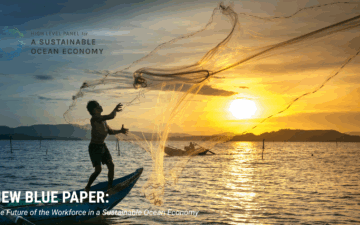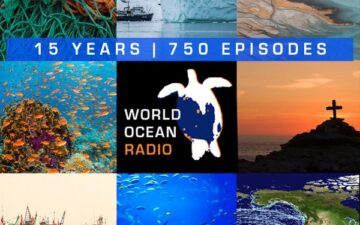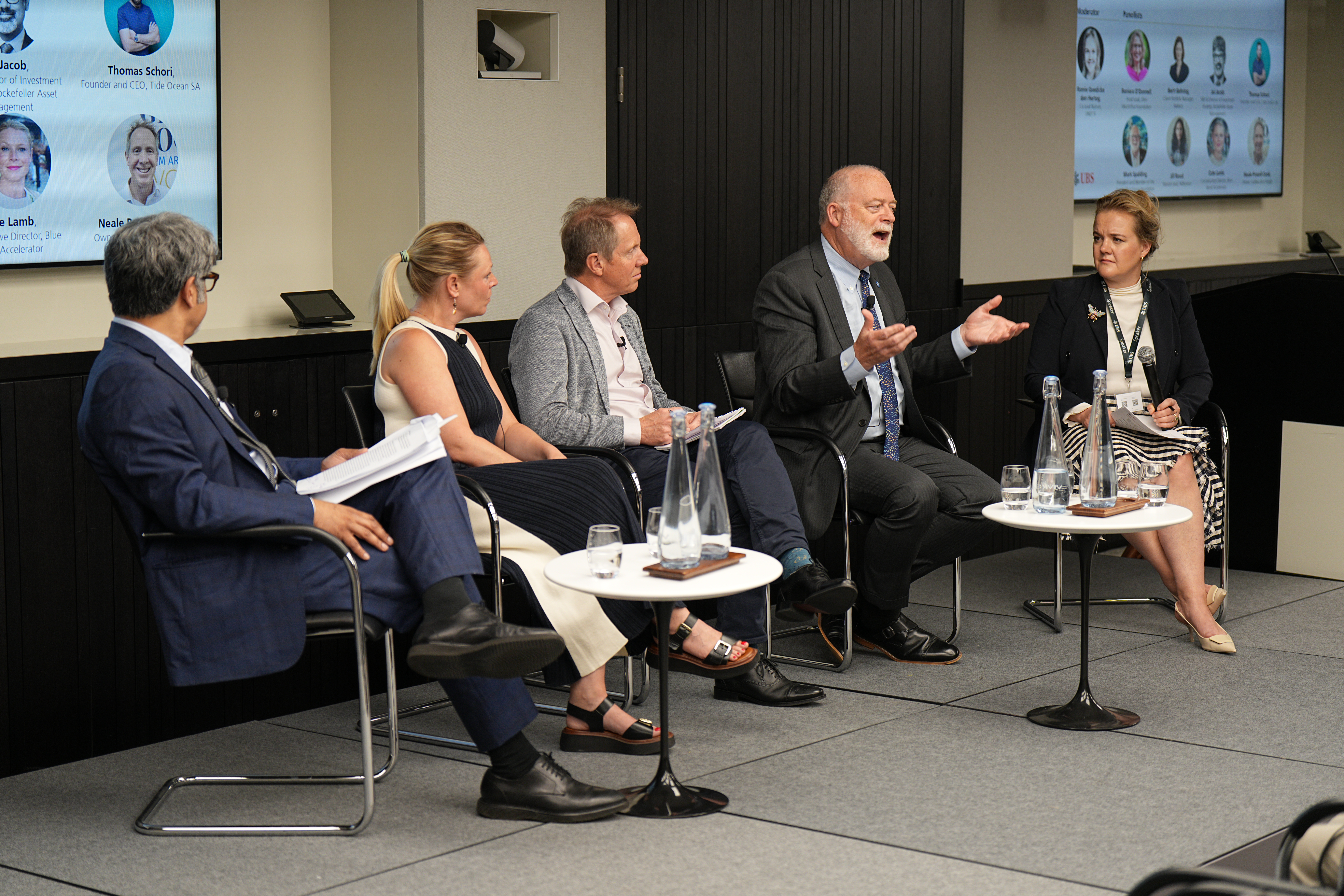At The Ocean Foundation (TOF), we approach the global issue of climate change from an international perspective, while focusing on local and regional efforts to monitor changing ocean chemistry and restore the blue carbon-based coastal ecosystems that are key to climate resilience. Around the world, we’ve learned the importance of engaging with governments to address these issues, and that is just as true in the United States. That’s why we’re thrilled to congratulate the National Oceanic and Atmospheric Administration (NOAA) on the formation of a new Climate Council to bring a holistic government approach in response to our changing climate, a move that will not only be felt in the U.S. but across our planet by everyone who relies on ocean data for climate readiness.
NOAA’s climate models, atmospheric monitoring, environmental databases, satellite imagery, and oceanographic research are used all over the globe, benefiting farmers trying to time harvests with monsoons influenced by conditions in the Indian Ocean and leading international climate science bodies alike. We are glad to see NOAA coalesce these products and their wealth of expertise into addressing one of the greatest challenges we face, climate change. The formation of the NOAA Climate Council is a tangible step towards rapidly bringing together science and governmental action in addressing the root of rising emissions while helping vulnerable communities adapt to the inevitable impacts.
From tackling marine debris and supporting the United Nations Decade of Ocean Science for Sustainable Development, to building capacity for ocean acidification monitoring in multiple regions, TOF and NOAA have strong alignment on priorities that will help reverse the trend of destruction of our ocean. That’s why we were so excited to announce our partnership with the agency earlier this year, which focuses on helping NOAA accelerate their mission to predict changes in climate, weather, the ocean and coasts, and share that knowledge with local communities that depend on it.
We are especially pleased that one of the priorities of the Climate Council is to advance equitable delivery of NOAA’s climate products and services to all communities. At The Ocean Foundation, we recognize those who are least responsible for climate change are likely to be the most affected, and ensuring these communities have the resources, capacity, and capability to protect and manage their cultural resources, food sources, and livelihoods is incredibly important to us all. Addressing climate change, to us, thus means building on the excellent science and tools in the U.S. to deliver actionable solutions around the world.
Monitoring Our Ocean’s Changing Chemistry
Given that we have one interconnected ocean, scientific monitoring and research needs to happen in all coastal communities — not just in the places that can afford it. Ocean acidification is expected to cost the global economy more than USD$1 trillion per year by 2100, yet small islands or low income coastal areas often have no infrastructure in place to monitor and respond to the issue. TOF’s International Ocean Acidification Initiative has trained more than 250 scientists from more than 25 countries to monitor, understand, and respond to these changes in ocean chemistry — a result of the ocean taking up almost 30% of the increased carbon emissions in our atmosphere — both locally and collaboratively on a global scale. Along the way, NOAA has lent the expertise of their scientists and supported work to broaden capacity in vulnerable regions, all while making available publicly-accessible data that forms a baseline for understanding.
Restoring Blue Carbon-Based Ecosystems Key to Climate Resilience
Another key priority of NOAA’s new Climate Council involves ensuring NOAA’s trusted and authoritative climate science and services are foundational to the U.S.’ adaptation, mitigation, and resilience efforts. At TOF, we seek to actively restore abundance and enhance the productivity of coastal ecosystems, like seagrass, mangroves, and marshes through our Blue Resilience Initiative. We further applaud NOAA’s commitment to help local and global communities thrive in this area — from the wealthiest urban district to the most remote rural fishing village.
Further integration of NOAA’s multi-faceted approach towards climate change will surely produce new information and tools that can be used to strengthen the global approach to understanding, mitigating, and acting on climate change. We look forward to continuing our work with NOAA to accelerate ocean-based solutions.







